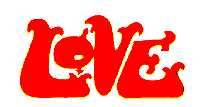| Author |
 Topic Topic  |
|
|
lemonade kid
Old Love
    
USA
9876 Posts |
 Posted - 14/01/2014 : 19:21:58 Posted - 14/01/2014 : 19:21:58


|
SPIRIT.... about the love for Spirit: in my soul, and for the uniqueness of the likes of Spirit and LoVE, because to me there are only a handful of the elite of LA...LoVE at the very top, Springfield, Byrds, Doors....& SPIRIT--they stand alone. There are many great ones, yes, but none like Spirit...then, now, or ever. (read "remembering Randy" at the end here and the shout-out to Love...)
Listen and read on...
Spirit 1968 full album-
http://www.youtube.com/watch?v=MLkekPi9qsY
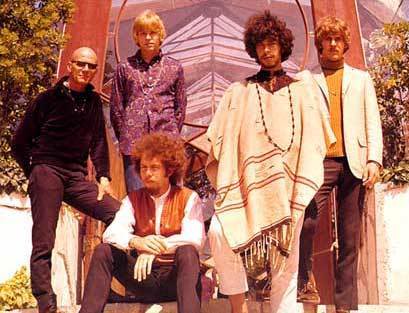
Spirit was an American jazz/hard rock/progressive rock/psychedelic band founded in 1967, based in Los Angeles, California. Their most commercially successful single in the US was "I Got A Line On You", but they were at least as well known for their albums including The Family That Plays Together, Clear, and Twelve Dreams of Dr. Sardonicus.
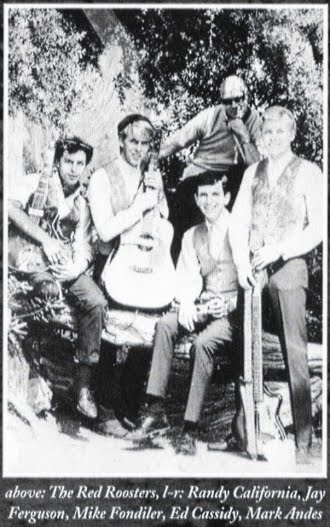
The original lineup of the group evolved from an earlier Los Angeles band, The Red Roosters, which included Randy California (guitars, vocals), Mark Andes (bass) and Jay Ferguson (vocals, percussion). With the addition of California's stepfather Ed Cassidy (drums), and keyboard player John Locke the new band was originally named the Spirits Rebellious (after a book by Khalil Gibran) but was soon shortened simply to Spirit. In 1966 Randy California had also played with Jimi Hendrix (then known as Jimmy James) in his band, The Blue Flame.
(At 16, Randy was forced to leave Hedrix' band by his folks--to young to go on Hendrix' famous first UK tour...but not too young to form SPIRIT with his step dad, Mr Skin!. Correct me if I'm wrong but I believe Randy was a mere 16 or 17 when Spirit recorded their seminal 1968 LP. -lk)
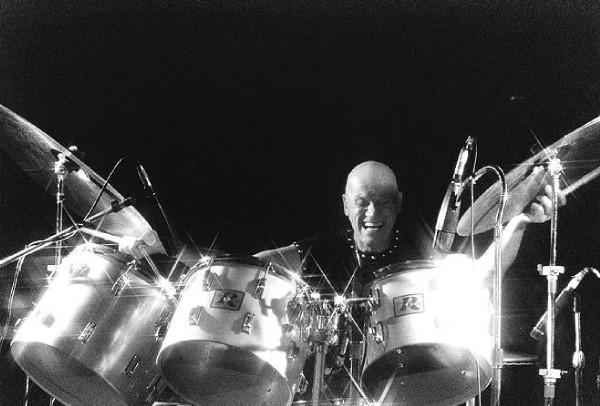
Cassidy was instantly recognizable by his shaven head (hence his nickname "Mr. Skin") and his fondness for wearing black. He was around twenty years older than the rest of the group (born in 1923). His earlier career was primarily in jazz and included stints with Cannonball Adderley, Gerry Mulligan, Roland Kirk, Thelonious Monk and Lee Konitz. He was a founding member of Rising Sons with Taj Mahal and Ry Cooder.
The group's first album, Spirit, was released in 1968. "Mechanical World" was released as a single (it lists the playing time merely as "very long"). The album was a hit, reaching No. 31 on The Billboard 200 and staying on the charts for over eight months. The album displayed jazz influences, as well as using elaborate string arrangements (not found on their subsequent recordings) and is the most overtly psychedelic of their albums.
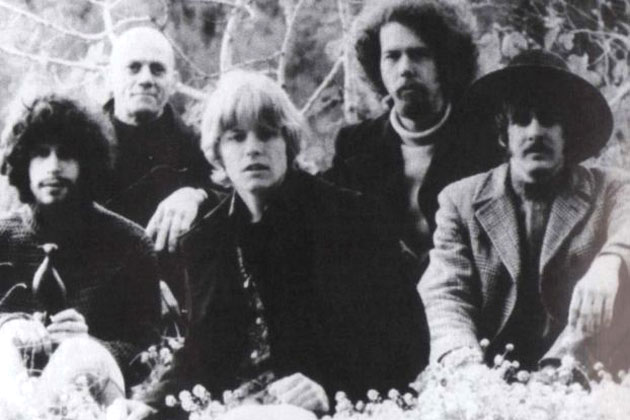
They capitalized on the success of their first album with another single, "I Got A Line On You". Released in November 1968, a month before their second album, The Family That Plays Together, it became their biggest hit single, reaching No. 25 on the charts (#28 in Canada). The album matched its success, reaching No. 22. They also went on tour that year with support band Led Zeppelin, who were heavily influenced by Spirit—Led Zeppelin played an extended medley during their early 1969 shows that featured "Fresh Garbage" among other songs, Jimmy Page's use of a theremin has been attributed to his seeing Randy California use one that he had mounted to his amplifier, and it is now widely accepted that Page lifted the descending guitar figure from Spirit's instrumental "Taurus" for Led Zeppelin's signature tune "Stairway To Heaven".

After this success, the group was asked by French film director Jacques Demy to record the soundtrack to his film, Model Shop and they also made a brief appearance in the film[citation needed]. Their third album, Clear, released in 1969, reached No. 55 on the charts. Spirit were offered the spot right before Jimi Hendrix at Woodstock[citation needed], but they were advised to turn it down and concentrate on a promotional tour for their third album. Record company managers felt that the festival would not be significant[citation needed], as it did not seem so at that time, and so they missed out on the massive international exposure that the festival and the subsequent film documentary generated.
.......................
After the release of Clear, California was called upon again to give the group a hit single. With the group producing the record on their own, they recorded a song California had written called "1984". It looked at first as though it would be the group's biggest hit yet. After being released in February 1970, it placed at No. 69 on the Billboard charts.
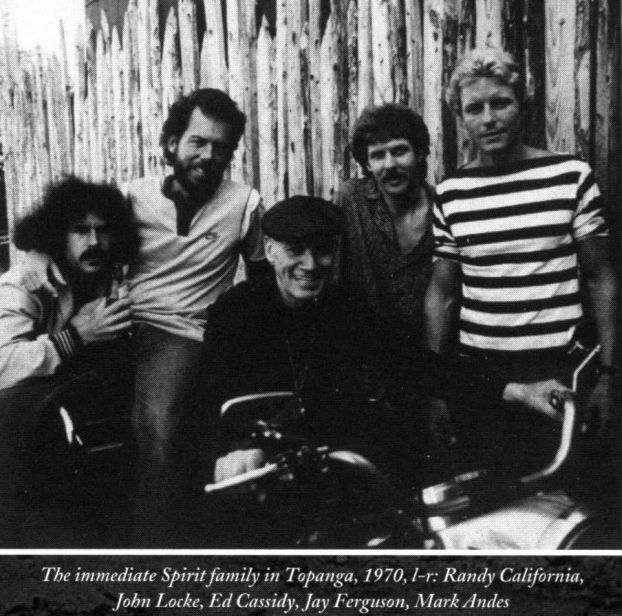
In retrospect, no one is sure why the single had such a brief chart life, but there are several possibilities. It is no secret that Lou Adler's alliance with Epic Records was uneasy at best, and at the time that the single was released, Adler's distribution deal with Epic came to an end. He had been eager to move distribution of the label to A&M Records, which he did as soon as the deal with Epic ended, which might have killed the commercial availability of the single (though Adler ended up giving Spirit's contract to Epic in the process). It has also been said that there was a tip sheet distributed to radio stations outlining the song's supposed political and social views, and opining that it might not be appropriate for air play. The song would finally see general release on The Best of Spirit in 1973.
In 1970, Spirit started working on what is widely considered to be their best LP, Twelve Dreams of Dr. Sardonicus. On the recommendation of Neil Young the band chose David Briggs as the producer. It was a prolific time for the group's writers and the album was finally released in late 1970. Especially memorable was Randy California's poignant "Nature's Way," which was written in an afternoon when the group was playing at the Fillmore West in San Francisco.
Epic released an early mix of "Animal Zoo" as a single, but this only made it to No. 97 on the charts. Like The Who's Tommy and Pink Floyd's The Dark Side of the Moon, Twelve Dreams of Dr. Sardonicus is critically regarded as a landmark of art rock, with a tapestry of literary themes about the fragility of life and the complexity of the human experience, illustrated by recurring lyric "life has just begun", and continued the group's pioneering exploration of environmental issues in their lyrics (cf. "Fresh Garbage"). The album is also notable for its inventive production and the use of a modular Moog synthesizer.
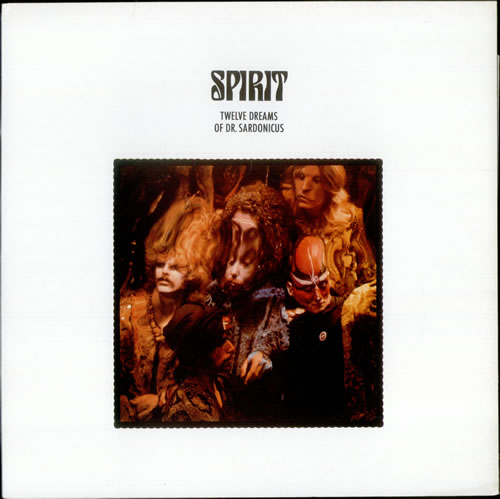
..........................................
After the group undertook a promotional tour to support the album Twelve Dreams of Dr. Sardonicus, Ferguson and Andes left the group, forming Jo Jo Gunne.
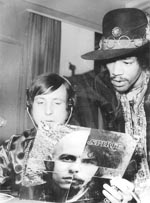
Bass player John Arliss initially took Andes' place, and California was still in the line-up, but he had suffered a head injury from a horse riding accident and was unable to tour. Bass player Al Staehely was recruited by Locke and Cassidy, and they toured briefly before deciding that they had to add a guitar player to do the music justice. Al's brother, John Christian Staehely auditioned for the band, and was quickly brought on board, with John departing the seminal Texas rock group "Krackerjack." Brothers John and Al, Cassidy and Locke, recorded the 1972 album Feedback in Columbia/Epic's Hollywood studios. It was a different turn for the group, showing more of a country-rock influence pervading their jazzier tendencies, but it also met with a mild commercial response, reaching No. 63 in the charts (the same position, ironically, that Sardonicus reached). The tour for Feedback proceeded very well for much of that year, but with musical roots that went different directions, eventually both Cassidy and Locke left the lineup, with the Staehely brothers recruiting Stu Perry to play drums. While the tour was well received critically, Spirit disbanded in mid-1973. The brothers would release their own album, Sta-Hay-Lee, in 1973.
California, meanwhile, had recorded and issued his first solo album, Kapt. Kopter and the (Fabulous) Twirly Birds, in late 1972. It featured appearances by Noel Redding (as 'Clit McTorius'), Leslie Sampson (the drummer from Noel's band Road, as 'Henry Manchovitz') and Cassidy and had a hard rock sound. After launching a brief tour to support the album, a follow-up album was recorded with Cassidy, entitled The Adventures Of Kaptain Kopter And Commander Cassidy In Potato Land. Though Locke made a guest appearance, it was not intended as a Spirit album at the time. Epic however rejected the completed album, and California moved to Molokai, Hawaii.
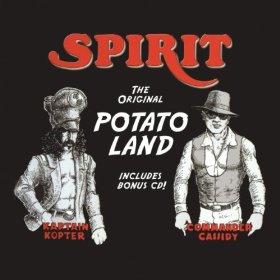
Epic Records decided to re-issue the group's first and third albums as a two-fer, entitled Spirit in 1973, in response to Sardonicus continuing to sell well, despite being off the charts. They also issued a compilation album, The Best Of Spirit, that year, as well as releasing the Sardonicus track "Mr. Skin" as a single. Surprisingly, "Mr. Skin" became a minor hit, and the two-fer hit the charts (along with The Best Of Spirit), and there was new demand for the group. Cassidy decided to capitalize on this, and put together an entirely new group for touring purposes, which lasted throughout the year.
....................................
In 1974 Cassidy made it a point to find and re-establish contact with Randy California. He eventually persuaded California to return to the mainland and give the band another shot. Andes worked with the duo for a while, but never intended to stay, as he was in the process of working with the group Firefall at the same time. Sound engineer/bassist Barry Keene, who had been a personal sound engineer for Frank Zappa, joined the band as its bass player.
In early 1975, the group was supposed to be the opening act for Ten Years After at a show in Florida, but when Ten Years After backed out at the last minute, Spirit was granted permission to take over the theatre for the evening. After going around to local radio stations to promote the show and setting a low ($3) ticket price, Spirit managed to sell out the 3,000 seat theatre. Using the profits from the show, they blocked out as much time as they could at a Tampa studio, "Studio 70".
After recording a huge amount of material at the studio, their manager at the time, Marshall Berle (the nephew of Milton Berle), offered the material to Mercury Records. On the basis of the material, the group was offered a contract, and a double-album entitled Spirit of '76 was culled from the material and released in May 1975. The album garnered a bit of FM airplay, so they quickly followed it up with Son of Spirit, released early the next year and featuring many songs taken from the same sessions.
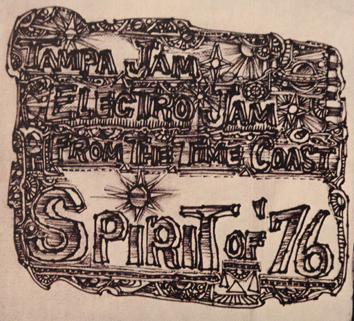
For the tour in support of Son of Spirit, Locke re-joined the group. Eventually, Andes returned to the line-up as well, and though Ferguson declined to participate in the group reunion at first, the band (with the addition of Mark's brother Matt Andes as a second guitarist) recorded an album entitled Farther Along.
The album returned the group to the U.S. charts one last time, peaking at No. 179. For a few shows at the Santa Monica Civic Auditorium, Ferguson re-joined the group. Disaster struck, however, when an inebriated Neil Young walked onto stage to join the band during the final show's encore of "Like a Rolling Stone". Randy would later claim that he didn't recognize Young, but at the time was angry with Neil for upstaging what he saw as his own comeback to Southern California. Randy immediately moved over in front of Neil and began pushing him backwards, away from the microphone, back past the drumkit and offstage. Neil, along with a host of Hollywood music and film personas, including Hal Ashby, had been hanging out with the band backstage before they went on, and John Locke had invited him to join them in their encore. When Locke saw California pushing Young offstage, he got up from his piano and said that he had had enough and didn't ever want to play with Randy again, and promptly walked off stage. Cassidy initially quelled the situation by leaving his kit and physically pulling both California and Young back onstage to the microphone to close out the song, asking the audience to sing along with them. The audience stood, stunned at the scene that was playing out before them. The damage had been done, and the reunion ended that night.
Undaunted, California assembled what was basically a solo album as a Spirit album under the name Future Games: A Magical Kahauna Dream. Mercury released it in early 1977, but it received no promotion, and it ended what little bit of commercial momentum the group might have regained. It also (initially) ended their contract with Mercury. At the same time, former bandmate Jay Ferguson was having success in his solo career in late 1970s with the hits "Thunder Island" & "Shakedown Cruise".
The group, now down to a trio with new bassist Larry "Fuzzy" Knight, toured extensively throughout 1978, and recorded a live album[clarification needed] (1977) that was released (in slightly different configurations) in several countries by different independent labels. It was not a commercial success, and after the tour's end in 1979, California left the group again.
....................................
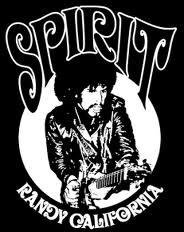
After Spirit's demise, California put together another group with the intent of restarting his solo career. This was short-lived, but while in England, a fan presented him with a petition of 5,000 signatures, requesting the release of the Potato Land album from 1973. In 1981, California put out a half-hearted version of the album, featuring only part of the original album (and what was there featured overdubbing done after the fact) with the addition of a few unrelated songs that were recorded in the late 1970s. It was released in the U.S. by Rhino Records (being one of the first albums that they released) and in the UK by Beggars Banquet Records, where it actually reached No. 40 in the UK Albums Chart (the only time they would chart in the UK), possibly due to the album being played by BBC Radio 1.
California's second solo album, Euro-American, was released in 1982 by Beggar's Banquet. He would release two more solo albums during the decade.
In December 1982, the original Spirit line-up re-formed and recorded several songs from their first four albums (as well as a few new tracks) live on a soundstage. Though the album Spirit of '84 was initially recorded for an audiophile label, Mercury Records re-signed the band (and gave California a solo deal) and released the album in 1984. Despite the fact that all five original members were on the recording, and MTV played the video[citation needed], the album was only a moderate success. Some of the original members went to do other projects, but California and Cassidy continued touring with new members Scott Monahan on keys and Dave Waterbury on bass.
California headed to England and recorded his third solo album, the contemporary hard rock Restless, in late 1985. Following a few live dates in England, California returned to the United States and resumed touring extensively with Cassidy, Monahan and Waterbury. There was one more solo album from California; a collection of material entitled Shattered Dreams that was released in 1986.
California then secured a deal for Spirit with I.R.S. Records, and Locke rejoined the band. They recorded an album in 1988 entitled Rapture in the Chambers, but it failed to return them to the charts.
The group self-released Tent Of Miracles in 1990 and embarked on working almost continually for the next six years. Though they would release very few albums of new material during the decade, the group was always either recording or touring. California had his own home recording studio since the early 1980s, though he had been making home recordings for years prior to that.
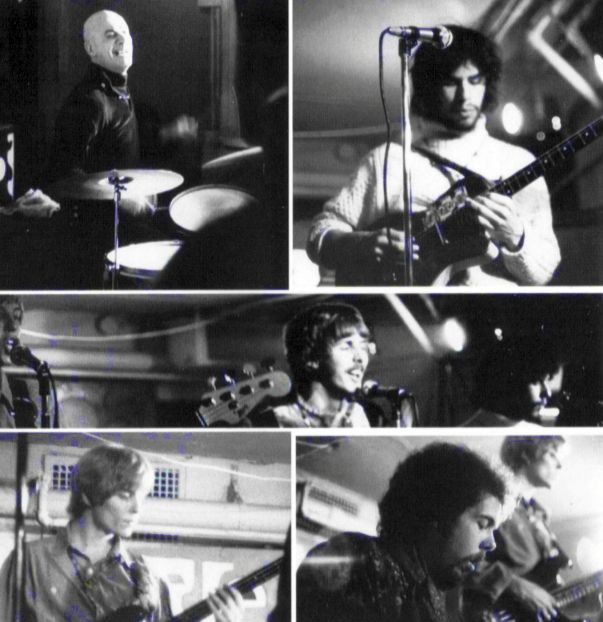
Sadly, this renewed vigor came to an end on January 2, 1997, when California drowned off the coast of Hawaii. He had been surfing with his son, who got caught in a riptide. He managed to push his son to safety but ended up losing his own life.
Though Cassidy did play a few dates with some former Spirit alumni under the name "Spirit Revisited" in 1998, California's death was effectively the end of the group. Locke died of complications resulting from lymphoma in August 2006. Cassidy died on 6 December 2012 in San Jose, California, at age 89.
.................................
California's passing, however, did not mark the end of the emergence of Spirit material (our own "signedRW" was instrumental in helping Randy's mother assemble many unreleased studio & live recordings found in Randy's garage).
Starting in 2000, there have been five collections of previously unreleased studio and live material, four of which were two-CD sets. California had also prepared an anthology of material from the group's first stint with Mercury Records entitled The Mercury Years. The two-CD set was released in early 1997, though it raised the ire of some fans who did not care for the fact that some of the material had been re-edited or featured overdubbing that was not present on the original releases.
Likewise, nearly all of Spirit's original albums are currently in print on CD. This is thanks to the efforts of Sony Music (with the Epic catalog, though Collector's Choice Music was the first to reissue Feedback on CD in the U.S., following a brief release on disc in France in the late 1990s) and Beat Goes On alongside Edsel, both UK labels (with the Mercury catalog, some of which had made it to CD prior to Beat Goes On and Edsel reissuing all of their Mercury albums). Their later independent albums are available through the group's website. The one album that is unavailable at this time is Rapture In The Chambers, which has not been reissued since the original 1988 release, though it was released on CD at that time.
Spirit has also found its work sampled by modern artists several times. The most notable of these was the "Extra P. Remix" of the song "Resurrection" by Common (which samples "Ice" from Clear) and "Feel Good Time" by Pink (which samples the track "Fresh Garbage").
..................
Remembering Randy California
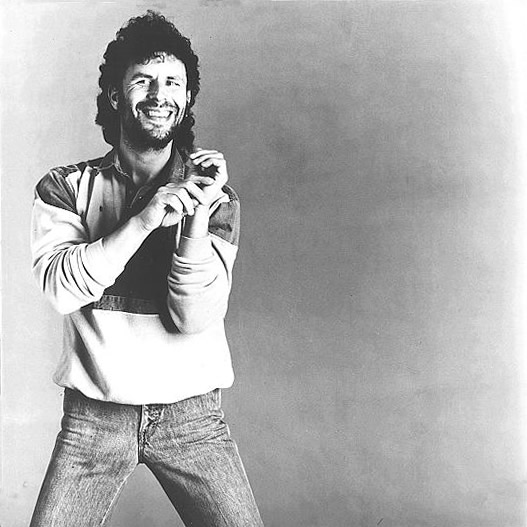
So, he’s gone then.
If Nick hadn’t metaphorically picked me up by the scruff of the neck and encouraged me to start writing the interviews and reviews which were to become the first issue of the Terrascope back in 1989, I could easily have become the David P. Housden of the Spirit world and created for Randy and chums the Spirit equivalent of the Love scrapbook and fanzine, ‘The Castle’. Perhaps I would have called it ‘Fresh Garbage’ - first track, first album, never really improved upon and a classic by any measure of success. Randy California was just seventeen years old when Ode Records released ‘Spirit’ in 1968. That’s him, standing in the centre of the rear sleeve, wrapped in a blanket and sporting the moustache I long suspected he was born with. Pictured in colour if you were lucky enough to pick up an import copy. Randy had already had a colourful career by the time that album was released; the oft-embellished story of him meeting Jimi Hendrix in Manny’s Music Store in New York City, catching up with him again three months later at the Cafe Wha? in Greenwich Village and trading licks together for a while in the band Jimmy James & The Blue Flames all took place when he was fourteen. Fourteen! I was only just discovering Spirit by the time I was fourteen, and by then (1973) the elder sages would already tell you that the best was over long before. Admittedly that year also coincided with something of a nadir in the career of Spirit. The original band, too small to contain the explosive talents (and egos) of both Randy California and Jay Ferguson, had broken up after the recording of ‘The Twelve Dreams of Dr. Sardonicus’ in 1970. Jay had gone off to form Jo Jo Gunne; Randy fell off a horse and fractured his skull and by the time he was released from hospital he found an ersastz Spirit continuing without him, a band which released a travesty of an album called ‘Feedback’. Randy’s response was to put together a unit called Kapt. Kopter & The Fabulous Twirlybirds, who released an LP of the same name in 1972, a sensual blend of Beatles melodiousness (there’s a couple of Beatles covers on the album, the first time Randy had acknowledged his huge debt of gratitude to the Fab Four), Hendrix’s aural assault and Coltrane’s modal sheets of sound. Randy’s guitar has rarely sounded better, and when he really lets rip - as he did in particularly fine fashion on a promotional live Kapt. Kopter session recorded for radio station KPFK in Los Angeles - you come to realise that he really was an outrageously gifted player, and that our loss really is all the greater for that fact.
“If I had to listen to one album before I died, it would probably be ‘Rubber Soul’” (Randy California)
The Kapt. Kopter band toured England - as Spirit - at the same time as the bogus Spirit toured Australia. Randy’s Spirit were on the receiving end of seven encores at the Rainbow in London in April 1973. History does not relate how many encores Al Staheley’s Spirit received at the Sydney Billabong Bar the same month. Unfortunately however the Kaptain’s gear was nicked from the back of their van in London on the first of April, and Randy threw himself despairingly into the Thames, only to be fished out, little the worse for wear, by a passer-by. Now I don’t want to seem ungrateful here, but where was that passer-by on January 2nd 1997 when the waves finally closed over Randy’s head off the island of Molokai, Hawaii? Couldn’t someone have done something? “Eye witnesses stated that Randy was caught in a furious undertow which almost took the life of his 12 year old son, Quinn, as well. Reports had California pushing his son out of the way to safety before being swallowed by the surf.” (Music News of The World, January 8th 1997) Eye witnesses? You mean there were people stood there watching?
“Swim to the bottom and never come up...” (Spirit - ‘Water Woman’, 1968)
Maybe though I’d have called that imaginary fanzine ‘My Friend’, another title of a Randy California song - this time off the ill-starred ‘Potatoland’ project - but also the manner in which Randy signed off a letter to me a few years back. Perhaps that’s how he signed all his letters; it wouldn’t surprise me in the least, he was that sort of bloke. I’ll treasure my letter for as long as I live all the same. ‘Journey to Potatoland’, an unfinished conceptual work which has gone down in history as Spirit’s equivalent to the Beach Boys’ ‘Smile’, in fact dates from shortly after the Kapt. Kopter episode - the three-piece Spirit were here in the UK promoting it when that unfortunate Thames incident intervened, and what there was of the album was previewed on Radio One (and heavily bootlegged as a result). In a quote which perfectly illustrates Randy’s wonderfully child-like, uncomplicated and gentle sense of humour, it was reported that the remainder wasn’t completed because “we couldn’t make the trip to Potatoland... the Koptermobile needed an engine overhaul”. [Consumer note: some of the additional tracks did eventually surface on the Chord Records CD of ‘Potatoland’ here in the UK - if the only version of that album you’ve ever heard is the comic-book stitch-up released by Rhino/Beggars Banquet, at least half of which wasn’t recorded by Spirit at all, then do yourself a favour and don’t give up searching until you find the closest approximation there’s yet been to the real thing. You owe it to yourself, and more importantly you owe it to Randy.
“As long as Cass can play those skins, we’ll be together.”
One trip Randy did make immediately upon his return to the States in April 1973 was to Hawaii, where he subsequently lived, well away from the music scene, for three years. Reports claimed that he subsequently “insulted the wrong person” and that the island elders took exception to his presence and asked him to leave. We should have seen then, of course, that Randy’s ill-starred association with water in general and with Hawaii in particular would one day combine to take his life. But we didn’t, just as nobody could ever have predicted that Randy would die in such freakish circumstances, or that the world’s oldest active rock drummer, Ed Cassidy, 74 this year and seemingly as strong as ever, would outlive his disgustingly healthy looking, deeply tanned, young (45 years old, and from where I’m sitting that’s still young, believe me) stepson guitar slinger who always did look more like a surfer than a psychedelic warlord anyway.
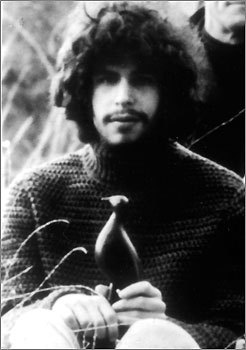
One advantage that comes from joining the Spirit story so late into proceedings - 1973, the attentive amongst you will remember from my opening paragraph, and a full five years after their inception - is that my personal perspective on what the best of Spirit really is is different perhaps to those who’d grown up with those classic first four albums, ‘Spirit’, ‘Clear’, ‘The Family That Plays Together’ and ‘The 12 Dreams of Dr. Sardonicus’. Whilst recognising the fact that here we have a body of work that represents one of the most idiosyncratic and consistently brilliant strains of indigenous American rock from a collective of socially aware musicians of the highest calibre, a band who flavoured their rock with jazz but never allowed “artiness” to interfere with their music, I’d had a good while to absorb those and was ready and waiting impatiently when Randy and Ed. released the Spirit comeback album ‘Spirit of ’76’ in 1975 (the intervening years had incidentally seen yet another California-less Spirit touring the States, although mercifully no LPs were released this time). Whether because of the long wait, or because as double LP’s go it really is the vicar’s knickers and an album from which very little, if anything, could or should be excised, I stand by that album as one of the very finest Randy left behind, matched only by the masterpiece which is ‘Future Games’, the near-solo conceptual kaleidoscope of an album from 1977 which he had been germinating, hatching and sifting ever since his sojurn in Hawaii. And in between them came the touchtone Diamond Spirits of ‘Son of Spirit’ and ‘Farther Along’, a pairing which came closer in intent to the original representation of Spiritual music as heard on those first four albums than anything before or since. I offer this not because I’m claiming albums like ‘Farther Along’ came within hat-doffing distance of the majesty of rightly revered classics such as ‘The Twelve Dreams of Dr. Sardonicus’, which would be a patently absurd assertion, but because in their own way they served as defining moments in the voyage of discovery of a young musical acolyte, in this case my own. So though others might tell me the best days of Spirit were long over, I’d beg to differ: I had my own best days, and they were great; different perhaps, but special nonetheless. Music to live by, to love by (the first concert my then future wife Heather and myself ever attended together was a Randy California show, supporting Ian Gillan in October 1979) and to hand down to your children and grandchildren. Randy gave us all of that. And so much more besides.
“You’re gonna be born and you’re gonna die. They’re the two major events in your life, and in between you try to make it as interesting as possible and to get as much out of it as you can.”
In the end, of course, that fanzine I’d envisaged became the Terrascope, and sensibly was, and is, written in appreciation of many more bands than just the one. All the same, one of the things I’ve been proudest of during the magazine’s seven years of existence is our long and close association with Spirit. We published what remains pretty much the definitive story of the band, interpersed with in-depth interviews, across our first five issues, culminating with two otherwise unreleased songs by Randy California on the free EP with issue 6 in January 1991. Randy, for his part, always seemed to pull out all the stops for the Terrascope, just as he’d shown his appreciation for Dark Star magazine before us in 1978 (Dark Star released a flexi containing two out-takes from ‘Potatoland’; Randy’s song ‘Sherri’ was named after the former girlfriend of their writer, and early Spirit champion, Steve Burgess, who himself passed away three years ago). ‘The Whale Song’ and ‘American Society’ from the POT-6 EP, and latterly the new Spirit song ‘Cages’ on our ‘Succour’ compilation CD, were all jaw-droppingly great recordings and a long way from being the obvious outtakes they so easily could have been. ‘American Society’ is still the only number ever to see the light of day from the long-promised Kapt. Kopter Part Two project, and the hauntingly beautiful instrumental (and now doubly poignant) ‘The Whale Song’ comes from an as-yet unreleased instrumental Randy California solo album dedicated to endangered ocean creatures called ‘Sea Dream’. Randy also spoke of an untitled album of acoustic songs, and in an interview in 1991 told Terrascope reporter Fred Mills, “It’s amazing how many hundreds of hours of recordings I have which have never been released”. If the three songs which we’ve been privileged to hear are anything to go by, there’s every chance some youngster coming to the story right now could yet have their own favourite four as yet unreleased Spirit albums, just as the first generation of fans had their four albums in the early ’70s and I had mine in the mid/late ’70s.
“People tell me I’m a legend, which probably means I’ll sell more records when I die.”
The wealth of previously unheard Spirit recordings available has never been richer, Randy himself kicking things off with the well-received collection ‘Chronicles 1967-1992’ on the band’s own label WERC CREW, the Sony Epic Legacy imprint assembling the wonderful ‘Time Circle 1968-1972’ double CD collection, and more recently reissuing the first four Spirit albums with a treasure-chest of out-takes, alternate takes and mixes thrown in for good measure. In March this year Sony also released the follow-up, ‘Spirit — The Mercury Years’ which covers the period 1975 to 1977 and therefore takes in the albums ‘Spirit of ’76’ (reproduced on CD for the first time, almost in its entirety) plus ‘Son of Spirit’, ‘Farther Along’ and ‘Future Games’ (extracts thereof; each of those have been available on CD for several years though). The band themselves have also seen fit to add archive material to their most recent releases, including three live cuts from 1967 to their latest - and I’m sure it won’t be final - album ‘California Blues’.
I’ll leave you with a chillingly portent-filled lyric lifted from that album, which came out at the end of last year, literally weeks before the tragic accident which took Randy’s life:
“Won’t you carry me down to the ocean
Fall beneath the deep blue sea
If I happen to drown...
Don’t rescue me”
(‘The River’ by Randy California, Aqua Blue Music 1996)
Randy Craig Wolfe, b. February 20th 1951; died January 2nd 1997.
© Phil McMullen, Ptolemaic Terrascope 1997
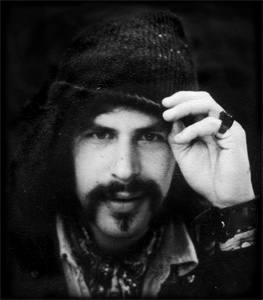
________________________________________________
Old hippies never die, they just ramble on.
-lk |
Edited by - lemonade kid on 14/01/2014 21:42:35 |
|
|
lemonade kid
Old Love
    
USA
9876 Posts |
 Posted - 14/01/2014 : 19:24:23 Posted - 14/01/2014 : 19:24:23


|
SPIRIT-The Family That Plays Together 1968-full album
http://www.youtube.com/watch?v=-p37y39LxFI
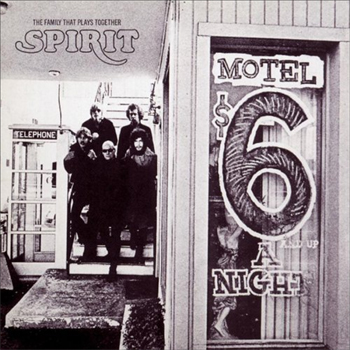

________________________________________________
Old hippies never die, they just ramble on.
-lk |
 |
|
|
lemonade kid
Old Love
    
USA
9876 Posts |
 Posted - 14/01/2014 : 19:27:02 Posted - 14/01/2014 : 19:27:02


|
SPIRIT-Clear 1969-full album
Track one, Dark Eyed Woman, may just contain one of the best guitar-god breaks in the history of rock....for shear power and beauty.
http://www.youtube.com/watch?v=fKG4cd2FYc8

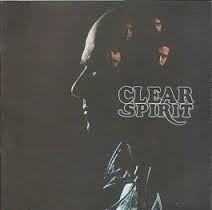
________________________________________________
Old hippies never die, they just ramble on.
-lk |
Edited by - lemonade kid on 14/01/2014 21:45:36 |
 |
|
|
lemonade kid
Old Love
    
USA
9876 Posts |
 Posted - 14/01/2014 : 19:58:10 Posted - 14/01/2014 : 19:58:10


|
12 Dreams of DR. SARDONICUS- 1970 - full album
One of the best albums ever recorded.
http://www.youtube.com/watch?v=MPzvHV1yTbk

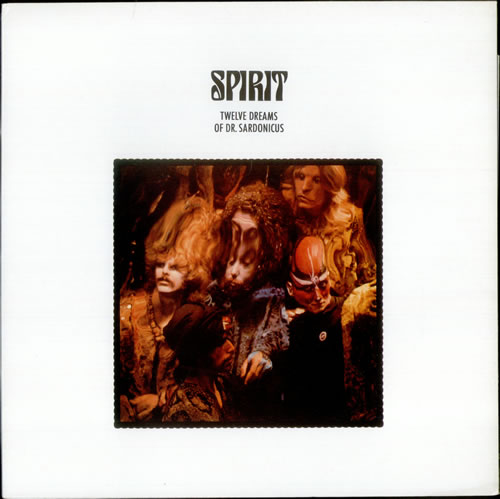
________________________________________________
Old hippies never die, they just ramble on.
-lk |
 |
|
|
lemonade kid
Old Love
    
USA
9876 Posts |
 Posted - 14/01/2014 : 20:39:19 Posted - 14/01/2014 : 20:39:19


|
Randy California & band - Backyard Jam 1996
California Blues
http://www.youtube.com/watch?v=PBdGL4IsI-U
So sweet to see Randy here jamming....sadly, not much longer for this world.
________________________________________________
Old hippies never die, they just ramble on.
-lk |
Edited by - lemonade kid on 14/01/2014 20:40:15 |
 |
|
| |
 Topic Topic  |
|
|
|
